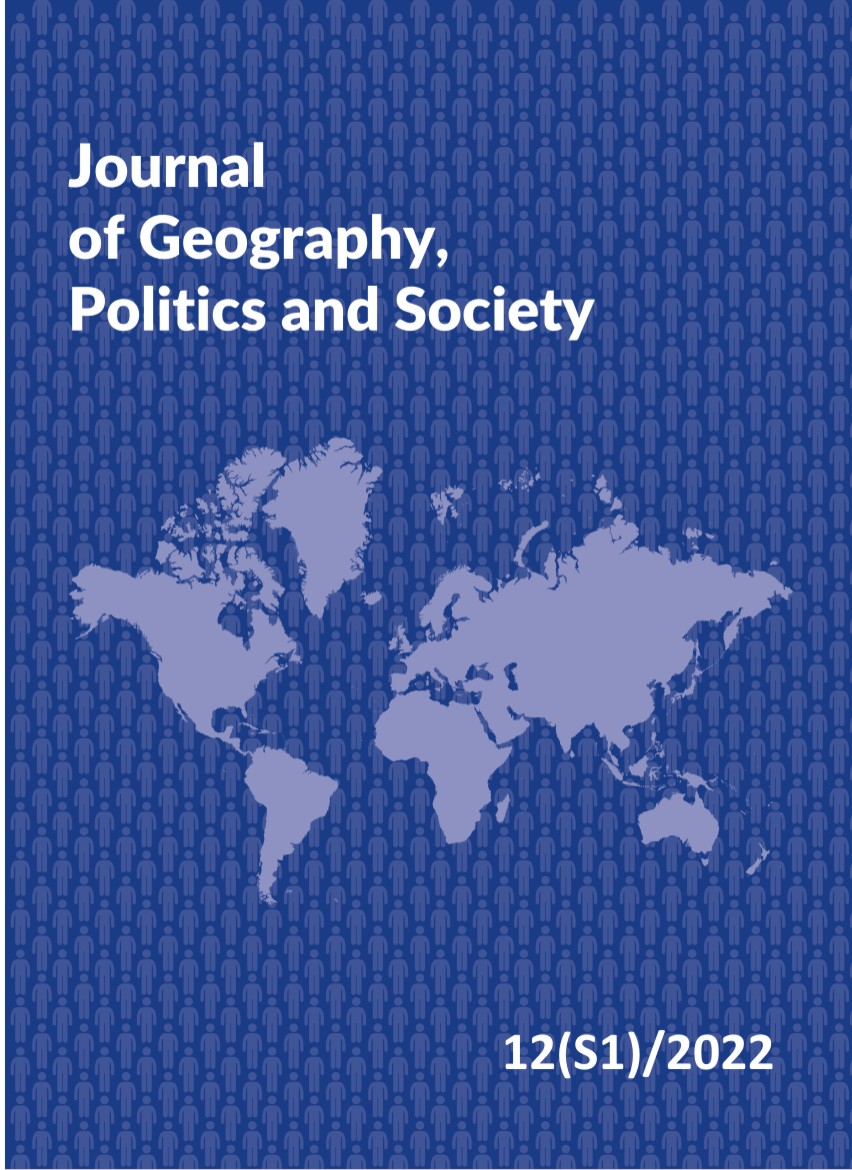The Impact of Myth Consciousness on the Formation of the National Political and Cultural Space: “Ukraine is not Russia”
DOI:
https://doi.org/10.26881/jpgs.2022.S1.03Keywords:
heroic myth, political consciousness, archetype, political culture, political myth, Ukraine, RussiaAbstract
The articles researches the concept of political culture as a system of inherited political notions expressed in symbolic forms and generalizes the differences between the political culture of Ukrainians and Russians. It stresses that the cultural identity of Ukraine is established on one of its basic tendencies – penchant for archaization of all symbolic forms; it researches the place of the heroic political myth in this process; it analyzes sacral projections of the political in the myth through which the subject-and-object order of the Ukrainian politics world is explained. Thus, the pattern of the heroic monomyth (a structured ontological range of symbols) serves as a program of political reality (as a structured order of political objects). The symbols of the heroic monomyth have sacral significance because they present an idea of political order, stability, forecastability of politics (the latter is lacking in the crisis context of development) when there is unwillingness of a part of citizens to bear responsibility for prospects of future development of events in the country in the conditions of long-term uncertainty. The article researches peculiarities of the how the structure-image of the hero builds the constitution of political reality in Ukraine and Russia.
Downloads
References
Aronson E., Pratkanis A.R., 2003, Epoha propagandy (Eng. Age of propaganda), Прайм-ЕВРОЗНАК, Sankt-Peterburg.
Baudrillard J., 2007, Fantomy sovremennosti (Eng. Phantoms of Modernity), [in:] K. Jaspers, J. Baudrillard, 2014, Prizrak tolpy: sbornik rabot (Eng. Phantom of the Crowd: Collected Works), Algoritm, Moskva, 186–270.
Bellquist J., 1987, Mythic Consciousness: Cassirer’s Theories and Strindberg’s Practice, Mosaic: A Journal for the Interdisciplinary Study of Literature, 20(2), 71–81.
Blondel J., 1992, Političeskoe liderstvo: put’ k vsieob”emolûŝemu analizu (Eng. Political Leadership: Towards a General Analysis). Rosijskaâ akademiâ upravleniâ, Moskva.
Bradford J., 2021, What Today’s Brands Can Learn From Mythological Stories, Forbes, https://www.forbes.com/sites/ forbesagencycouncil/2021/11/19/what-todays-brandscan-learn-from-mythological-stories/?sh=389796e4220b (accessed 21 March 2022).
Gal’ B., 2008, Mifotvorčestvo conrol-c error (Eng. Mythmaking control-c error), Dìalogi, http://dialogs.org.ua/ru/project/ page12809.html (accessed 22 March 2021).
Jung K.G., 2004, Duša i mif. Šest’ arhetipov (Eng. Soul and myth: six archetypes), Harvet, Moscov.
Kočubej L., Merkotan K., 2004, Arhetipi polìtičnogo lìderstva âk pìdġruntâ manìpulâtivnih tehnologìj (Eng. Archetypes of Political Leadership as a Rationale for Manipulative Strategies), Deržava ì suspìl’stvo, 2/2004, 164–169.
Kolinič O., 2012, Arhetipi kak osnova imidža ukrainskih politikov (Eng. Archetypes as the Basis for Image of Ukrainian Politicians), [in:] Žurnalistika postosvestskih pespublìk: Sbornik trudov (Journalism of Post-Soviet Republics: Collected Works), Izdaltel’skij centr BGU, Belgorod, 313–323.
Kostiukevych R., Mishchuk H., Zhidebekkyzy A., Nakonieczny J., Akimov O., 2020, The impact of European integration processes on the investment potential and institutional maturity of rural communities, Economics and Sociology, 13(3), 46–63. doi: 10.14254/2071-789X.2020/13-3/3.
Koval V., Mikhno I., Udovychenko I., Gordiichuk Y., Kalina I., 2021, Sustainable natural resource management to ensure strategic environmental development, TEM Journal, 10(3), 1022–1030. doi: 10.18421/TEM103-03.
Malahov V., 1999, Mìf pro mìf. Nacìonal’na mìfologìâ âk tma sučasnoï socìal’noï mìfotvopčostì (Eng. Myth About Myth. National Mythology as a Theme for Modern Social Mythmaking), Fìlosofs’kì obrìï, 1–2/1999, 50–61.
McLuhan G., 2003, Ponimanie media: Vnešnie pasšipeniâ čeloveka (Eng. Understanding media: the extensions of man), KANON-Press, Moskva.
Nixon G.M., 2010, Myth & Mind: The Origin of Human Consciousness in the Discovery of the Sacred, Journal of Consciousness Exploration and Research, 1(3), 289–338.
Nixon G.M., 2015, Development of Cultural Consciousness: From the Perspective of a Social Constructivist, International Journal of Education and Social Science, 2, 119–136.
Šajgorods’kij Û., 2009, Polìtika: vzaêmodìâ real’nostì ì mìfu (Eng. Politics: Interaction of Reality and Myth), Znannâ Ukraïni, Kiïv.
Ŝerbinina N., 1998, Politika i mif (Eng. Politics and Myth), Vestnik MGU, 2/1998, 43–55.
Ševčenko O., 2006, Krizova mìfologìâ ta ìï destruktivna rol’ v sučasnìj Ukraïnì (Eng. Crisis Mythology and its Destructive Role in Current Ukraine), Den’, 132, https://m.day. kyiv.ua/uk/article/panorama-dnya/krizova-mifologiya (accessed 22 March 2021).

 Academic Scientific Journals
Academic Scientific Journals




